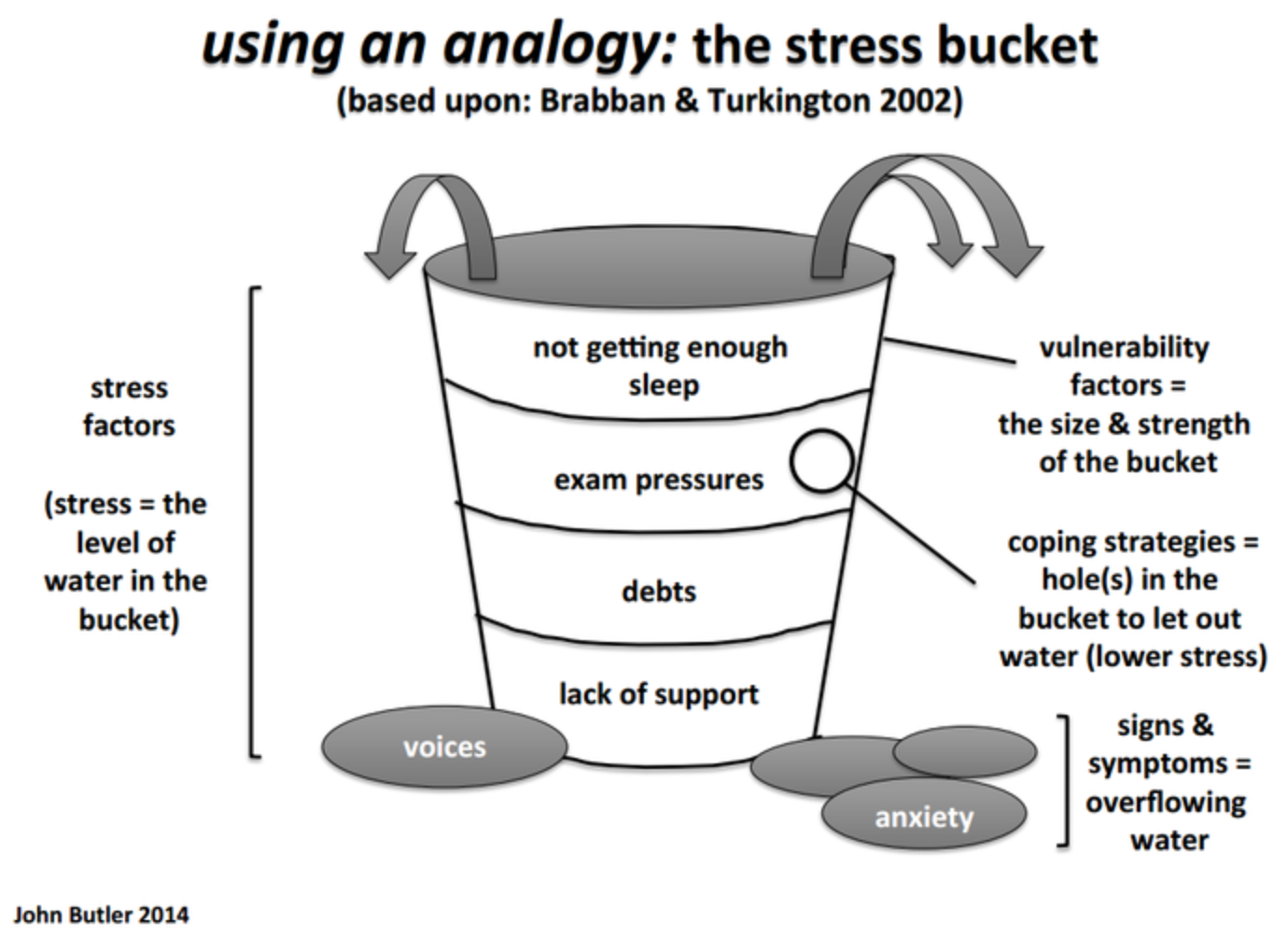What is Stress?

This year the Mental Health Foundation decided to focus on stress for Mental Health Awareness week, which has had its profile raised with recent Government reports such as 'Thriving at Work'. Stress is something we all experience at work and at home, so why make a big deal out of it?
Stress seems to be a normal part of our lives, but long term can have damaging effects on our health, both physical and mental. Without thinking, we often reduce stress by doing things that help us relax or feel like we have made progress. This might be having a drink in the evening, going for a run, doing a bit more at work or any number of activities.
Imagine that we all have a bucket that we hold our worries and stresses in.

As things that stress us come along, we put them in the bucket and as they resolve themselves or we work through them they go out of the bucket. Sometimes we end up holding a few stressors in our bucket at one time and our bucket can feel quite full.
When your reaching your limit, you may notice:
- feeling sluggish, tired or having brain fog
- getting irritable or overreacting to little things
- symptoms of anxiety or depression
- not being able to concentrate or focus for long on tasks
- back, shoulder and neck tension or pain
Having any of these symptoms for a long time can cause health problems both physical and mental. At this point, any other stressor can cause a 'snap'. A point where you can no longer cope.
It may feel like you are drowning.
Yet there are simple ways to stop our buckets from overflowing. Talking to someone, getting outside, taking time to cook. However, some problems can be overwhelming and need more than this.
Here are some steps to help break stresses down:
- Think about the general area that may be causing stress and give it the label - money, family, health etc.
- Break it down into smaller bits e.g. Money - paying off debts, swapping accounts to somewhere better, living to each payslip...
- For each smaller thing, look at what you can do about it. Can you go to someone who can give professional advice? Can you make an appointment to start working towards an achievable outcome? Can your line manager help with workload to manage other stressors?
- Is there anything you cannot do? Sometimes there is no fix yet or ever. This can then cause us unnecessary stress if we spend time, energy and thoughts on something that may not change. The hardest, but often the best, thing we can do is accept that we will get thoughts about that issue and not dwell on them. The stressor will still be there, but it will be smaller and take up less space in your bucket.
Maybe try this week to draw out your bucket and see what things are in there. Figure out what you can do and do it! Then plan some lovely activities that will boost your well-being and improve your mental health.


